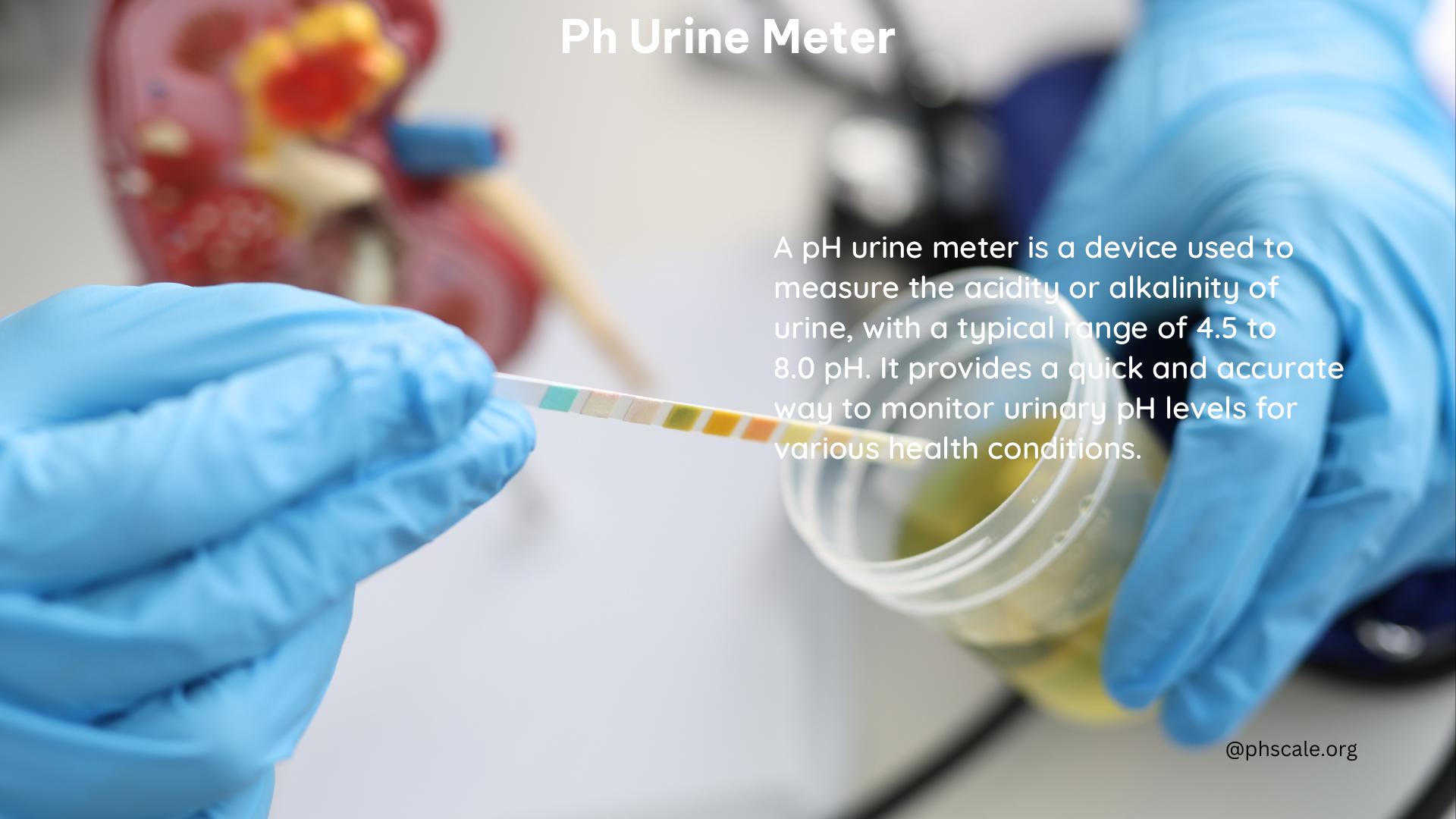A pH urine meter is a crucial tool for individuals looking to monitor and maintain the acidity or alkalinity of their urine. This comprehensive guide will delve into the intricacies of using a pH urine meter, including the normal range for urine pH levels, how the device works, the different types available, and important considerations to keep in mind when using one.
Understanding Urine pH Levels
The normal range for urine pH levels is between 4.5 and 8.0, with an average pH of around 6.0. However, the ideal pH range can vary depending on individual health conditions and specific medical requirements. Maintaining a healthy urine pH is essential for overall well-being, as it can impact various bodily functions and processes.
How a pH Urine Meter Works

A pH urine meter typically uses a pH sensor to measure the acidity or alkalinity of urine. The sensor is usually based on differential measurement of an ISFET-REFET pair, which allows for accurate and precise readings. Some meters also have autocalibration systems, ensuring accurate measurements immediately after turning them on.
Types of pH Urine Meters
When it comes to pH urine meters, there are several options to choose from:
- Digital pH Meters: These meters provide highly accurate readings with a range of 0.00 to 14.00 and an accuracy of ±0.01.
- pH Test Strips: These are litmus paper strips that change color based on the pH level of the urine. They are quick and easy to use but may not be as accurate as digital meters.
- Lab-Grade pH Meters: These are advanced meters used in laboratory settings for highly precise measurements.
Considerations for Using a pH Urine Meter
When using a pH urine meter, it’s essential to be mindful of potential contaminants and chemicals that can affect the accuracy of the readings. These include:
- Urine Sample Contamination: Ensure the urine sample is collected and handled properly to avoid contamination, which can alter the pH reading.
- Calibration Solutions: Use calibration solutions specifically designed for the pH meter to ensure accurate readings.
- Environmental Factors: Temperature, humidity, and exposure to light can affect the pH meter’s accuracy.
DIY and Home Remedies
For DIY users, it’s crucial to follow proper calibration and usage procedures to ensure accurate readings. Here are some helpful tips:
- Calibrate the Meter: Regularly calibrate the pH meter using the provided calibration solutions to maintain accuracy.
- Store the Meter Properly: Store the pH meter in a clean, dry environment to prevent damage and ensure accurate readings.
- Use the Meter Correctly: Follow the manufacturer’s instructions for collecting and testing urine samples to ensure accurate readings.
History and Development
The development of pH urine meters has led to significant improvements in the accuracy and convenience of measuring urinary pH. The introduction of autocalibration systems and advanced sensors has made it possible for patients to measure their urinary pH at home with high precision.
Solutions and Alternatives
For those looking for alternatives or additional solutions, consider the following:
- pH Balance Products: Products like Lit-Control pH Balance can help maintain the acid-base balance of the urine.
- pH Adjusting Products: Products like Lit-Control pH Down and Lit-Control pH Up can help adjust the urine pH to a specific range.
- Consult a Healthcare Professional: If you have concerns about your urinary pH or require medical guidance, consult a healthcare professional for personalized advice.
In conclusion, a pH urine meter is a valuable tool for individuals looking to monitor and maintain the acidity or alkalinity of their urine. By understanding the normal range for urine pH levels, the different types of meters available, and the important considerations to keep in mind, you can effectively use a pH urine meter to support your overall health and well-being.
References
- Milwaukee Instruments. (n.d.). pH. Retrieved from https://milwaukeeinstruments.com/tests/ph/
- Amazon. (n.d.). Digital PH Meter, PH Meter 0.01 PH High Accuracy Water Quality. Retrieved from https://www.amazon.com/Accuracy-Measurement-Household-Drinking-Aquarium/dp/B0BD96T3Z8
- Amazon. (n.d.). Amazon Best Sellers: Best pH Testing. Retrieved from https://www.amazon.com/Best-Sellers-pH-Testing/zgbs/industrial/4989325011
- Lit-Control. (n.d.). Lit-Control pH Meter. Retrieved from https://www.lit-control.ie/pp/lit-control-ph-meter
- NCBI. (2014). A new device for simple and accurate urinary pH testing by. Retrieved from https://www.ncbi.nlm.nih.gov/pmc/articles/PMC4022968/.
